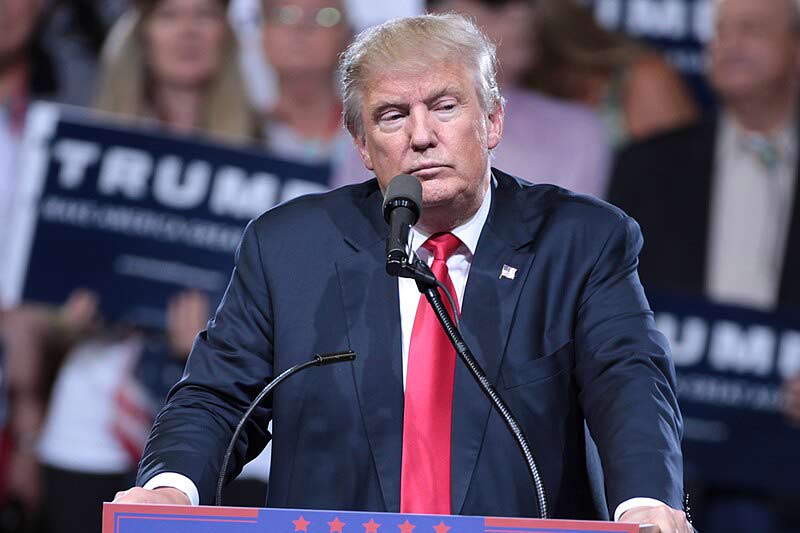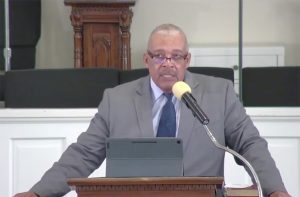Donald Trump is considering declaring a “national economic emergency” to allow for a new tariff program
by Edward Ulrich, January 15, 2025

Image from Wikipedia.
Donald Trump is considering declaring a “national economic emergency” in order to provide legal justification for implementing a large swath of tariffs on both allies and adversaries of the United States, where the declaration would allow Trump to construct a new tariff program by using the International Economic Emergency Powers Act (IEEPA), which authorizes a president to manage imports during a national emergency.
This article mentions that issue for example.
I’ve been seeing articles including in the conservative media criticizing Trump’s upcoming potential tariffs, warning about how he will be targeting all imports in addition to specific ones. I don’t think that will necessarily be problematic however and in fact I think it will be beneficial as long as it is implemented properly.
I’m not opposed to the concept of tariffs, but I believe that Trump should implement many of them on a graduated scale that increases over time, where they should start by being somewhat low in many cases and be increased by a set amount each year, in order to give domestic producers time to adjust to best exploit their new beneficial situation. Also that way consumers wouldn’t initially be hit with too excessive of “taxes” due to domestic producers not yet being able to fill the demand, such as with high tech products like computers.
Much of the current debate about the issue centers around the matter of the potential tariffs that will be universal rather than the ones that are specific.
A recent Reuters article explains that Trump is denying recent reports saying that his aides were exploring tariff plans that would only cover critical imports, and the Establishment article also claims that his universal tariffs are “deepening uncertainty among business leaders about future U.S. trade policies.”
The article says the following:
Trump responded on his Truth Social platform after the Washington Post cited three sources familiar with the matter as saying that Trump aides were exploring a narrower approach to tariffs, focused on certain critical sectors.
“The story in the Washington Post, quoting so-called anonymous sources, which don’t exist, incorrectly states that my tariff policy will be pared back. That is wrong. The Washington Post knows it's wrong. It’s just another example of Fake News,” he wrote in a post on Truth Social.
…
Trump, a Republican who takes office on Jan. 20, had vowed to impose tariffs of 10% on global imports into the U.S. along with a 60% tariff on Chinese goods - duties that trade experts say would upend trade flows, raise costs and draw retaliation against U.S. exports. He later said he would impose a 25% tariff on Canadian and Mexican imports on his first day in office, which could lead to sharp increases in the cost of gasoline.
As Trump is quoted as saying in the above article, he has been consistent in advocating for tariffs across the board since even before the election. For example this November 2025 AFP article says the following:
On the campaign trail, Trump said he would put in place across-the-board import tariffs of between 10 and 20 percent in a bid to raise revenues, protect domestic industries, and bring jobs back to the United States.
He has also threatened to impose a 60 percent tariff on Chinese goods, and even floated a 200 percent-plus levy on cars made in Mexico.
“To me ‘tariff’ is a very beautiful word,” he said in a recent Fox News interview. “It’s a word that’s going to make our country rich again.”
Trump “has made no mystery of the fact that he’s deeply enamored with tariffs as a policy tool,” Kimberly Clausing, a nonresident senior fellow at the Peterson Institute for International Economics (PIIE) told AFP on Tuesday, adding she thought he would put in place large tariffs if elected.
… The above article from the French news agency AFP (link) is very critical of his agenda however, making the following claims:
If enacted, these policies will undoubtedly have a significant impact on US and international trade, rerouting the flow of goods and reshaping international economic ties.
But while they may raise some revenues, they will also hit US businesses and consumers hard, according to a recent paper by the Tax Foundation nonprofit.
If imposed, Trump's proposed tariff increases would raise taxes on businesses by another $524 billion annually, shrink GDP by at least 0.8 percent, and reduce employment by close to 700,000 full-time equivalent jobs, the researchers estimated.
“I think it’s just sort of a very quick way to shoot the US economy in the foot, if not the leg,” said Clausing, a former deputy assistant secretary for Tax Analysis in the US Treasury Department during the Biden Administration.
… I don’t believe the above claims that are critical of the agenda, however.
Critics of tariffs usually try to avoid mentioning the fact that the regulations strongly encourage domestic production that is very beneficial for the economy, but rather they only talk about it being a “tax on consumers.” (Presumably the domestic producers will raise their prices somewhat as well however because it would only make sense for them to do so, but nonetheless the money will remain in the U.S. economy.)
Personally I think even the universal tariffs would be beneficial, since most products that can be imported can also be created domestically, including even most agricultural products. (However there are issues with agricultural crops where much of it in the U.S. is GMO due to lax regulations, whereas imported crops are often more appropriately not genetically modified, as this article talks about.)
Much of the effectiveness of Trump’s tariffs hinges on how “genuine” he is with his motivations of bringing production back to the United States, where otherwise the tariffs could in fact be problematic.





